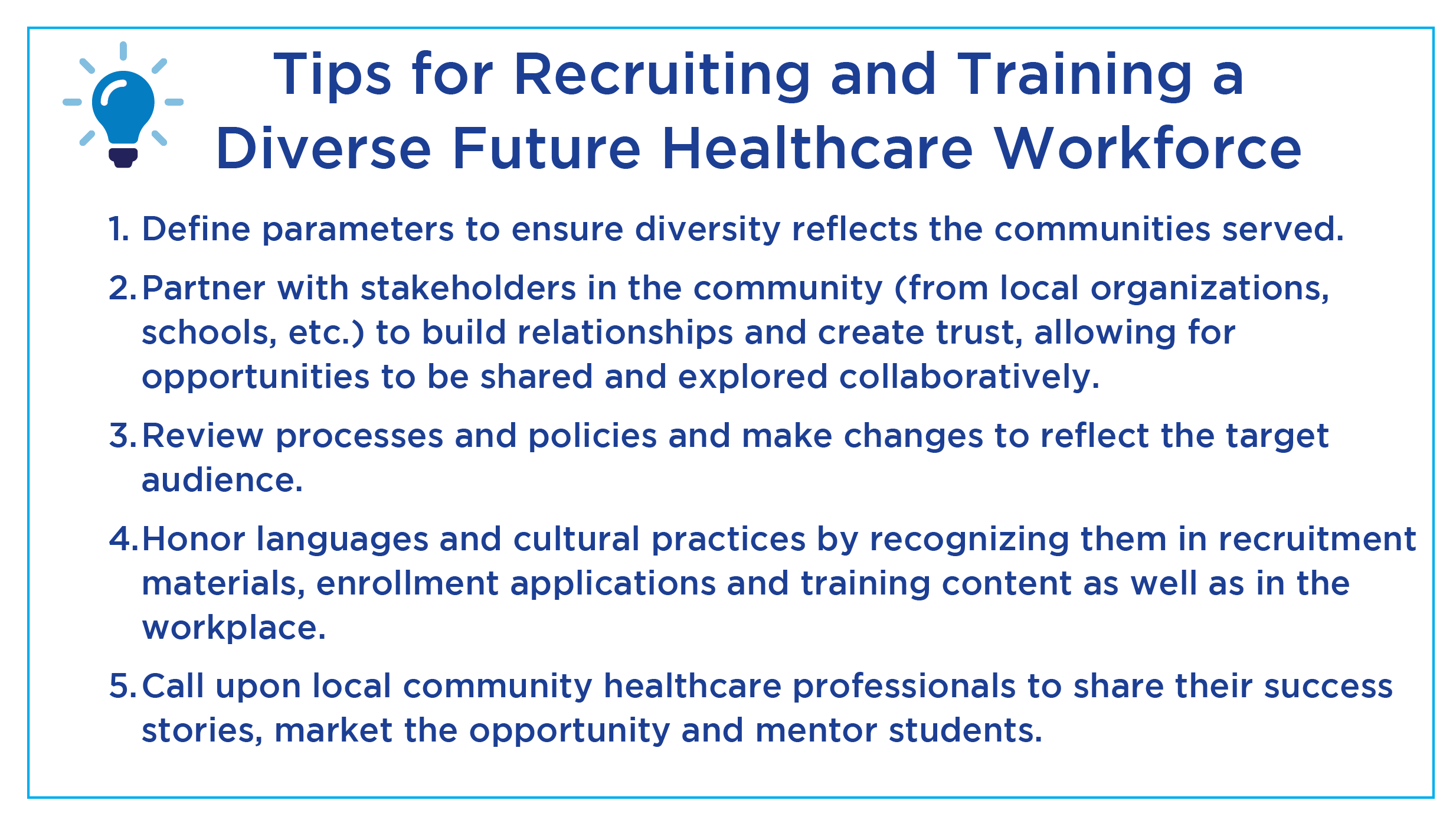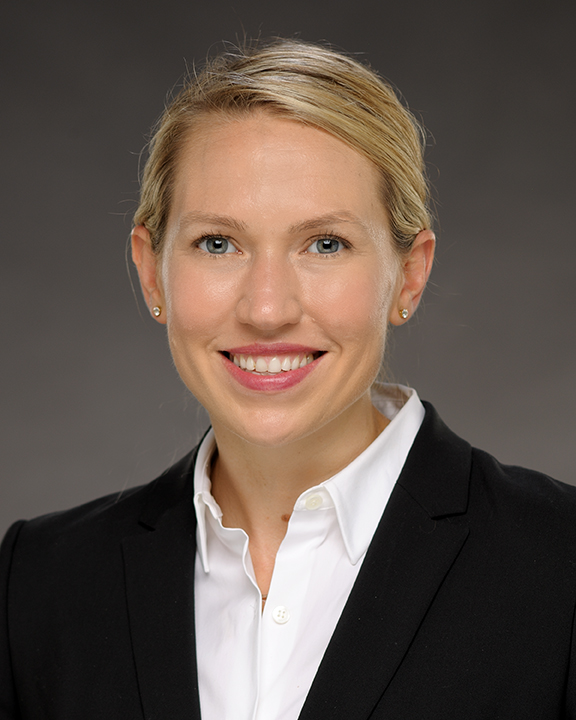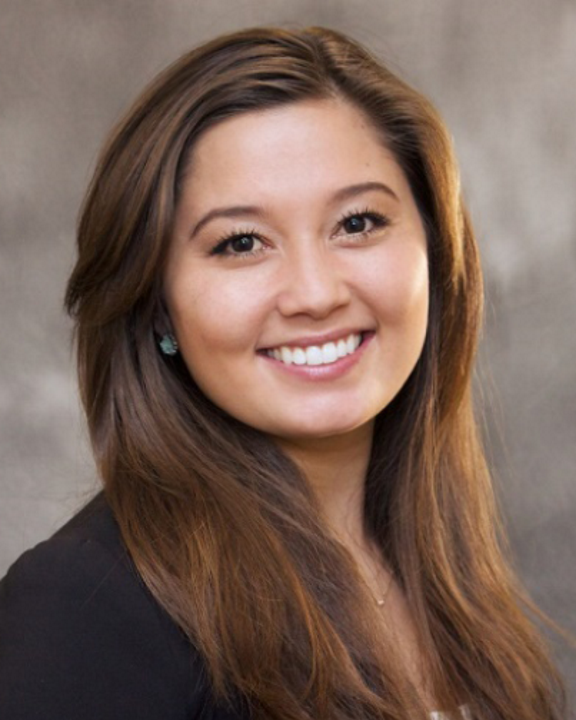Health equity is at the top of the agenda for growing numbers of providers as well as the Biden Administration: 58% of health systems now say health equity is a top priority, up from 25% in 2019, according to the Institute for Healthcare Improvement.
A key to erasing racial and ethnic healthcare disparities including access to care, patient engagement and health outcomes is a diverse and inclusive healthcare workforce. However, clinician diversity has not kept pace with the increasingly diverse U.S. patient population.
Making matters worse, providers are challenged with a growing workforce gap for virtually every clinical position. The Association of American Medical Colleges projects a shortage of 54,100 to 139,000 physicians by 2033. Similarly, the U.S. faces a deficit of 1.1 million new registered nurses, according to the Bureau of Labor Statistics.
The situation is exacerbated in Hawai’i. The high cost of living and debt burdens often drive people to the mainland, resulting in clinician shortages extending from certified nursing assistants, phlebotomists, social workers and physical therapists to specialty nurses and physicians. At the same time, more doctors in Hawai’i’s rural areas are retiring.
Adventist Health Castle, with inpatient, outpatient and home-based medical services, wanted to find a way to create and sustain a diverse healthcare workforce and talent pipeline that better represented and served Hawai’i’s communities and patients. Located just outside of Kailua, Adventist Health Castle serves all of O’ahu and is the primary healthcare facility for the Windward side of the island.
Hawai’i exhibits a unique landscape of diversity among its residents. According to the 2019 data from the U.S. Census Bureau, some of the primary races accounted for are 37% Asian, 25% white, 24% as two or more races, and 10% Native Hawaiian and Pacific Islander. This diverse community requires unique and innovative solutions for their healthcare needs.
The way to diversity
Adventist Health Castle partnered with COPE Health Solutions to develop and implement a workforce development strategy designed to address diversity and shortages. The partners quickly determined that success in recruiting and retaining a culturally competent and diverse workforce would require adding more clinicians and other staff with a deep understanding of the Windward community on O’ahu –its culture, belief system and language of Hawaiian Creole English or “Pidgin.”
Starting in 2018, COPE Health Solutions and Adventist Health Castle built a multi-faceted initiative to raise local awareness about healthcare career opportunities and provide an educational experience. The cornerstone of the program is COPE Health Scholars, which places aspiring health professionals in the hospital for hands-on learning and solves local recruitment challenges including:
- Lack of career awareness and exploration opportunities
- Lack of pre-clinical and professional development training programs
- Lack of ethnic diversity and representation within healthcare professions and healthcare leadership positions
The COPE Health Scholars program is a professional development program designed to give high school students, college students and career changers the opportunity to learn a patient-centered approach to care. By earning a completion certificate from Keck Graduate Institute (KGI), Health Scholars also can advance their professional school candidacy and build a foundation for their careers in healthcare.
Important successes
In the program’s first three years, it has attracted 385 Health Scholars from diverse backgrounds, showcasing the “melting pot” of Hawai’i. Similar to the state’s representation, these Health Scholars report identifying as 32% Asian, 18% two or more races, 11% white, 10% Native Hawaiian or Pacific Islander and 3% other, such as American Indian or Native American, Black or African American, Alaskan Native, and Middle Eastern. Through their educational rotations, the Health Scholars have devoted 35,605 hours to supporting patients and administrative needs, including 8,623 hours during the pandemic.
“The COPE Health Scholars program is a key building block in our strategy to diversify our workforce and keep talent and leadership in our local communities. We are thrilled with how it has improved our ability to attract local Windward and other residents who now see rewarding career paths that could keep them in O’ahu while addressing workforce shortages in the future,” said Jesse Seibel, Mission and Community Executive, Adventist Health Castle.
Diversity workforce building blocks
To recruit Health Scholars and build its diverse workforce pipeline, the Adventist Health Castle program is anchored in community engagement, academic partnerships, and cultural and linguistic competency.
1. Build community and academic partnerships
To raise program awareness, COPE Health Solutions and Adventist Health Castle developed relationships with local professors, deans and career center professionals. They also recruited Windward O’ahu doctors to participate in school career fairs, student club meetings and event presentations.
As a result, several high schools, colleges and universities have approved the COPE Health Scholars program at Adventist Health Castle as a healthcare practicum for their students. Schools including Kailua High School, Kalaheo High School, University of Hawai’i at West O’ahu, Hawai’i Pacific University and Brigham Young University at Hawai’i are offering academic credit for Health Scholars’ clinical experiences, which reduces participation barriers due to limited student time.
2. Demonstrate cultural understanding
While many Hawai’i-based schools and students view the opportunity to earn a KGI completion certificate as a great benefit, others had reservations about not working solely with Hawai’i-based schools. To address those concerns, COPE Health Scholars and Adventist Health Castle have incorporated local context and cultural awareness into the program. They recognize Hawaiian Creole English is an official dialect and have added Native Hawaiian as a language option to the COPE Health Scholars’ online application. The program also presents the Native Hawaiian healing practice, Laʻau Lapaʻau, as a traditional healing method and not an alternative healing method.
3. Create a sense of belonging
In targeting potential health professionals from underrepresented or marginalized communities, COPE Health Scholars and Adventist Health Castle call upon local community physicians, nurses and administrators to share their success stories. Hearing from people who have overcome many of the same socioeconomic, racial and ethnic barriers lets potential Health Scholars see the opportunity as more achievable and feel a sense of belonging.
Moreover, the COPE Health Scholars program trains incoming students in cohorts. This approach creates a sense of community as all team members work toward similar education and career goals.
4. Professional development
COPE Health Scholars participate in clinical and administrative rotations, introducing them to a variety of healthcare careers, different types of patients, and levels of patient care and acuity. The program also provides skill-building in the areas of email etiquette, interviewing, resume development, communication, personal statement writing, public speaking, budgeting and financial planning.

Early engagement is key
Enrolling diverse student populations into healthcare professional training programs is a critical step in addressing workforce disparities. Clearing a pathway with academic and social support, COPE Health Scholars’ pre-professional development program lays the foundation for increasing a sustainable and successful diverse healthcare workforce.
Contact Elizabeth DuBois at edubois@copehealthsolutions.com to learn more about COPE Health Scholars or other workforce programs to help fill current and future workforce gaps.

